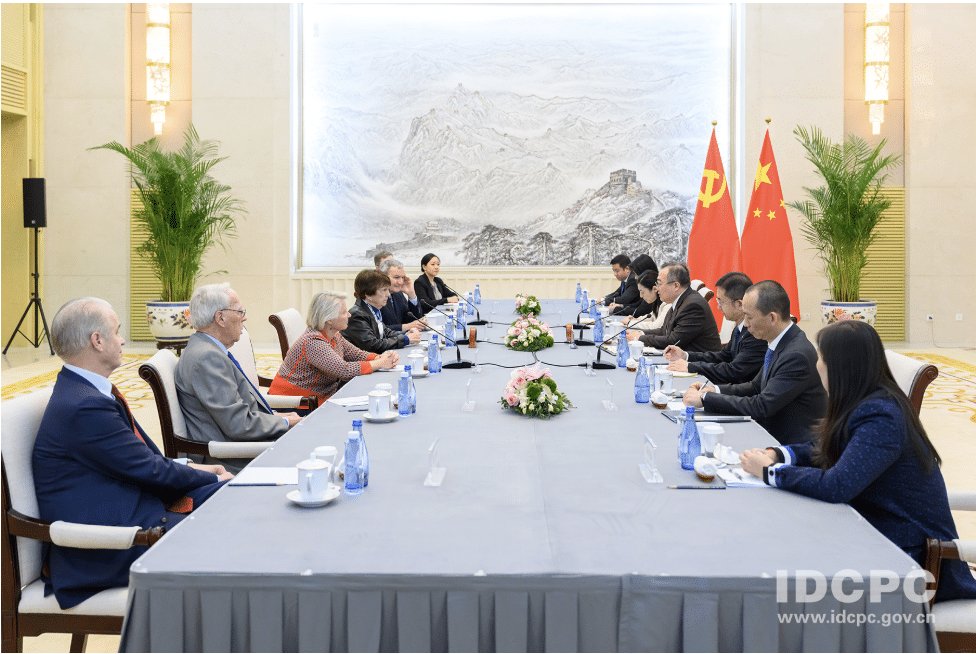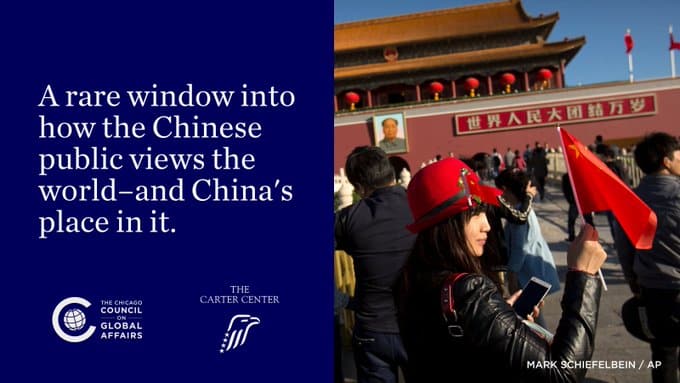Chinese and US Engagement with Developing Countries News Roundup: Jul.8 – Jul.19, 2019
Is Sudan being exploited by foreign powers? What are the environmental impacts of Chinese mines in the Central African Republic? Why are African countries defending China’s repressive policies in Xinjiang? What impact will the free trade area in Africa have on imports and exports? How do UN human rights officials view the situation at the US southern border? Learn the answers to these questions and more in this edition of the news roundup.

Every two weeks, The Carter Center’s China Program releases an overview of major events involving Chinese and US global engagement, with a particular focus on emerging issues in Africa and Latin America. In addition to using news sources, the news roundup will analyze papers and reports from academic journals, governmental bodies, and NGOs, and will also summarize debates and other events organized by think tanks on select issues. The news roundup is intended to be a platform and resource for both China watchers and for readers interested in political and economic development in developing countries. It aims to deepen the understanding of China’s foreign policy, and emerging issues and trends in developing countries, as well as to enhance the prospect of multinational cooperation among China, the U.S., Africa and Latin America.
‘Africa’s exporters will gain from its free trade area’
(BBC News, 8 July 2019)
Rwandan businessman Faustin Mbundu said that exporters will benefit from Africa’s free trade area, the continent-wide agreement signed by 44 African nations. According to the treaty, each participant nation becomes a common market. With 8.6% GDP growth in 2018, Rwanda is a strong proponent of the treaty and is encouraging local producers to take advantage of the opportunity that may open up. Speaking of his farming operations, Mr. Mbundu said their production has increased from two tonnes a hectare to more than 10 tonnes a hectare.
Attenborough: Climate risks Africa turmoil
(BBC News, 9 July 2019)
Naturalist and broadcaster Sir David Attenborough passionately spoke to the Commons Business, Energy and Industrial Strategy Committee that climate change will make parts of Africa uninhabitable in the next two or three decades. He warned that warming waters that are turning coral reefs white would destroy maritime-based economies and cause mass migration in parts of Africa. He criticized the voices skeptical about climate change in the U.S. and Australia, and hoped to raise airfares to discourage flying.
Sudan: Is it being exploited by foreign powers?
(Reality Check team BBC News, 10 July 2019)

Opposition leaders in Sudan say its military rulers are being exploited by foreign powers that are taking advantage of the country’s natural resources and strategic location. They point out that China is the second largest importer of the country’s resources, especially crude oil, following the United Arab Emirates. Regional powers such as Turkey and Qatar are vying for contracts of developing the ports in Sudan and both countries secured a contract worth $4 billion to support the Sudanese government in developing a port in Suakin, south of Port Sudan. Turkey and Qatar are political rivals to Saudi Arabia and the UAE, and Saudi and the UAW are pressuring Sudan to withdraw from the deal.
Central African Republic report cites ‘ecological disaster’ in calling for closure of 4 Chinese gold mines
(South China Morning Post, 14 July 2019)
A Central African Republic parliamentary report is calling for four Chinese-run gold mines to be closed due to pollution threatening public health, and accounting irregularities. The report called the situation an “ecological disaster,” and the inquiry began due to multiple complaints from the local population. The nearby Ouham River has been so polluted by Chinese mining activity that the lack of clean drinking water is causing a rising death rate in local fishing villages. The report also raised concerns about resources “being squandered with the complicity or certain ministry of mines officials.”
Nine African unis sign agreements in China
(Maina Waruru, The PIE News, 16 July 2019)
Nine African universities signed cooperation agreements with Chinese universities and think tanks during a two-week tour of China in June sponsored by the new China-Africa Institute of the Chinese Academy of Social Sciences. The agreements establish academic collaborations in the humanities and social sciences, including joint research initiatives and exchange programs. Further agreements in the fields of science and information and communications technology may come in the future.
Why these African countries are defending China’s mass detention of Muslims
(Abdi Latif Dahir, Quartz, 16 July 2019)
In response to a letter signed by over 20 European and Western states that criticized China’s repressive policies in Xinjiang, 37 African, Latin American, and Asian counties signed a letter in support of China. The letter praised China’s “remarkable achievements in the field of human rights” and said that China’s policies in Xinjiang are contributing to peace and security because China is facing threats of terrorism, separatism, and religious extremism from the province. Signatories include Muslim-majority states such as Qatar, Pakistan, and Saudi Arabia. 16 African countries, including those with large Muslim populations (Sudan, Egypt, Algeria, and Somalia), signed the letter as well. On July 15, China praised the letter and said it countered the way Western and foreign media has been covering the situation in Xinjiang. Many of the states that signed the letter engage in significant trade with China or have secured billions of dollars in funding for infrastructure projects from China. Most of the countries have also signed on to the Belt and Road Initiative. Some of the countries, including Saudi Arabia, Egypt, Eritrea, and South Sudan, have been criticized by the UN and activists for their own human rights abuses.
U.N. Rights Head ‘Shocked’ by Treatment of Migrant Children at U.S. Border
(Nick Cumming-Bruce, The New York Times, 8 July 2019)
On Monday, the United Nations human rights chief, Michelle Bachelet, condemned how the United States is treating migrant children arriving from Mexico. She said that children should never be detained and be separated from their families. In June, U.N. human rights officials visited five facilities and found that many children were underclothed, underfed, , and kept in overcrowded environments. Ms. Bachelet urged American immigration officials to find noncustodial alternatives for migrants and refugees.
Venezuelan jet ‘aggressively shadowed’ US military plane
(Aljazeera, 22 July 2019)

The US military on Sunday accused a Venezuelan fighter aircraft of “aggressively” shadowing a US Navy plane over international airspace, which is another sign of the increasing hostility between the two nations. The encounter between the United States and Venezuelan planes occurred on Friday, the same day that the Trump administration announced it was sanctioning four top officials in Venezuela’s military counterintelligence agency. The two planes did not collide, and no one was hurt in the incident. The statement published by Venezuela’s government said they rejected “the incursion of a US reconnaissance and intelligence aircraft” in the flight area.








